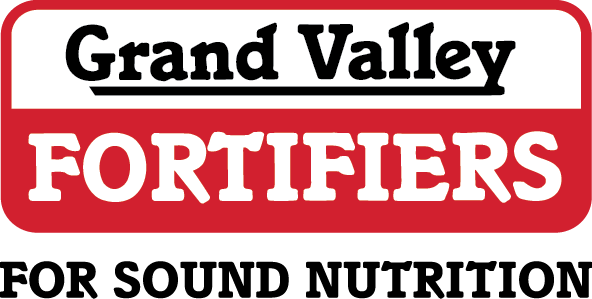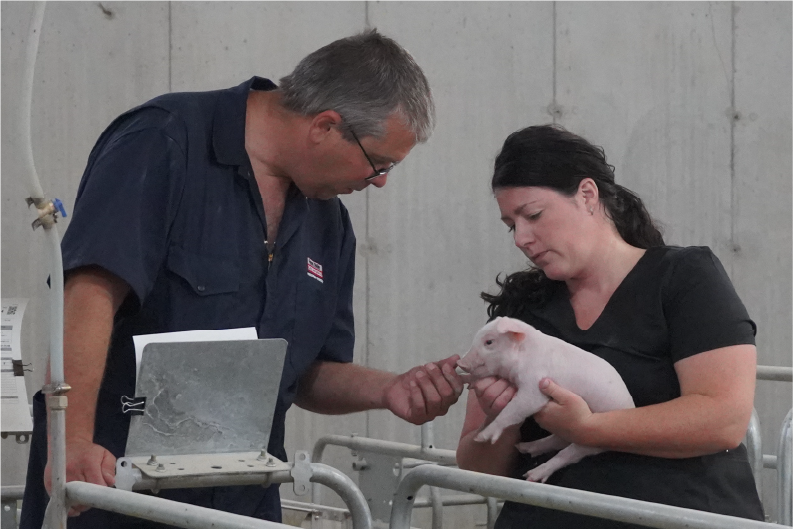
By Drew Woods
Manager of Monogastric Nutrition,
Grand Valley Fortifiers

Measure:
We all know the saying that “you can’t manage what you don’t measure”. This is a statement that is both simple and extremely valid. When tough times come and we want to make changes we need the best information possible to guide those decisions. If we don’t keep proper records or know how to harvest the knowledge contained in them we are making changes without full insight. Working through sow records or closeouts is an excellent way to spot trends, eliminate inefficiencies and help eliminate items that are not pulling their weight in the barn. If you are not sure how to do proper data mining and evaluation that’s ok, there are experts at your benchmarking service, or elsewhere in the industry who are more than
happy to assist. This leads me directly into my next item.

Involve all your stakeholders:
We tend to want to try and fix problems ourselves but with complex businesses like swine operations that is not always the best approach. Taking the team approach will always garner better outcomes. Call a meeting with your vet, your genetics supplier, your feed rep and anyone else who can help influence your bottom line.
Everyone mentioned above is a source of tips, tricks, feedback and information to help you re-align your production and make sure you are doing what is best for your business and your animals during this market downturn. Asking for help can be hard but the result is always worth it.

Be a tortoise and not a hare:
Slow and steady wins the race when it comes to working through difficult markets. Snap decisions and operating out of fear only lead to poor outcomes. Take your time and ensure you are comfortable with the decisions you are making and that benefit your business not just in the immediate but in the long term. Remember, tough times don’t last, tough people do. You want to make sure you do not make a rash change that may save money in the short term but will impede your business in the medium and long term future. This could include things like letting your parity structure get skewed, reducing the cost and quality of feed to the point you impair growth and reproduction while increasing feed conversion or by cutting back on herd health expenses. While all of these sound tempting in the short term they have knock on effects that will slow any return to normal profitability in the future.

An ounce of prevention is worth a pound of cure:
Moving along with the health theme, don’t ignore preventative measures in the barn. Whether that be routine vaccinations, keeping up on barn maintenance or maintaining your presence in the barn managing the animals. Small individual efforts add up to a large sum at the end of the day. Trying to prevent issues before they become large is key right now. Walk the pens and pull sick or poor doing pigs immediately and deal with them accordingly, losing a market hog to a fixable problem is always unfortunate and preventable. Don’t fall into half dosing vaccines or even skipping them, there are always nasty bugs just waiting for an opportunity to show up and wreak havoc. Finally, don’t let the animal environment fall into disrepair. It is hard to warrant investing time, and money into the barn but the maintenance bill will always be cheaper than the inevitable repair bill that comes from ignoring the issue.
This article was written for the Fall 2023 Eastern Swine Grist. To read the whole Swine Grist, click the button below.

